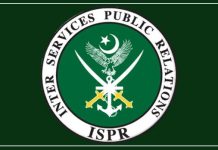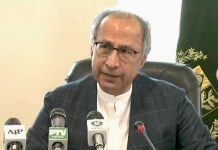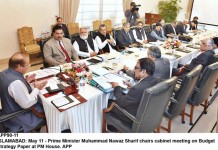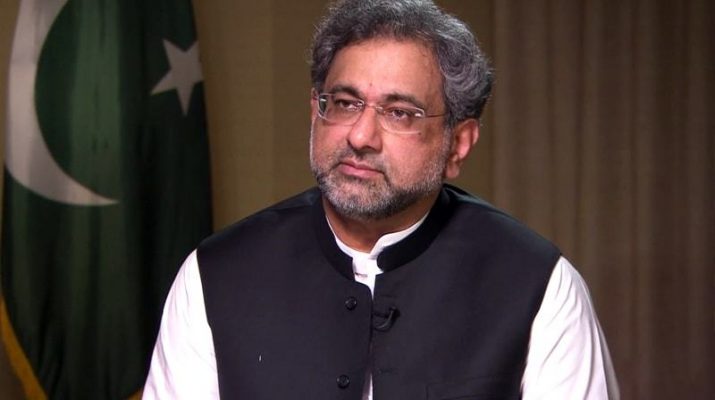مضمون کا ماخذ : کلیوپیٹرا
Pak-US relationship not defined by Afghan conflict: PM
NEW YORK: Pakistan’s relationship with the United States is 70 years strong and is not defined by the conflict in Afghanistan alone, Prime Minister Shahid Khaqan Abbasi said while speaking at the Council on Foreign Relations (CFR). Abbasi’s New York visit to attend the 72nd session of the United Nations General Assembly comes at a […]
NEW YORK: Pakistan’s relationship with the United States is 70 years strong and is not defined by the conflict in Afghanistan alone, Prime Minister Shahid Khaqan Abbasi said while speaking at the Council on Foreign Relations (CFR).
Abbasi’s New York visit to attend the 72nd session of the United Nations General Assembly comes at a time when tensions between US and Pakistan are running high in the wake of Trump’s Afghan and South Asia policy announcement. Speaking during an hour-long session at the CFR with David Sanger, the national security correspondent for The New York Times, Abbasi said that Pakistan intends to remain engaged with the US in order to defeat terror in the region and find lasting peace in Afghanistan.
“We have engaged with the US. We continue to engage with them to resolve any differences that come up and move forward,” he said.
Once again denying President Donald Trump’s assertion that Pakistan provides sanctuaries to terrorists, the prime minister said, “Nobody wants peace in Afghanistan more than Pakistan.”
He also said that Pakistan had asked Afghanistan to provide coordinates for any terrorist sanctuary that it alleges exists in Pakistan and “we will take action against that sanctuary”.
He said that Pakistan had suffered $120 billion worth of economic losses due to the “vicious” war the country had been involved in to rout militancy, and added that the impression that Pakistan was fighting the war against terrorism with the help of foreign resources was “wrong”. “We fought the war with our own resources and we defeated the terrorists.”
Abbasi claimed that Pakistan had never billed the US forces for ground or air logistics. In response to a question, he also said that Pakistan was currently not hosting any American bases on its soil.
Answering a question about the presence of Jamaatud Dawa (JuD) chief Hafiz Saeed on political campaign posters during the recently held by-election in Lahore, the prime minister said the Election Commission of Pakistan would take action against the independent candidate who used Saeed’s photo during his campaign.
Noting that the candidate had bagged four percent of the votes, Abbasi said, “We do not condone such an activity and we will take action where it’s required.”
Asked by a Human Rights Watch official whether he would speak out against Pakistan’s blasphemy law, Abbasi said it was “only up to the parliament to amend or change the laws”.
To another question, the prime minister said that Pakistan wanted normalised relations with India but the “basic core issue” of Kashmir had to be resolved before the two sides could engage. He also said that Pakistan sees “zero” political or military role for India in Afghanistan, as it was likely to complicate the situation in the region.
Addressing US concerns over the safety of Pakistan’s nuclear weapons, the prime minister said the country had a “robust and very secure” command-and-control system with civilian oversight for its strategic nuclear assets.
Stressing that Pakistan did not have any “fielded tactical nuclear weapons”, Abbasi said Pakistan had developed short-range nuclear weapons in response to India’s Cold Start doctrine. “It’s a very secure environment in which our strategic weapons are controlled and held.” Abbasi had met US Vice President Mike Pence on the sidelines of the UN General Assembly on Tuesday afternoon, launching a process that both hoped would help rebuild ties between the two nations, once close allies in the war against terror.
Published in Daily Times, September 22nd 2017.












